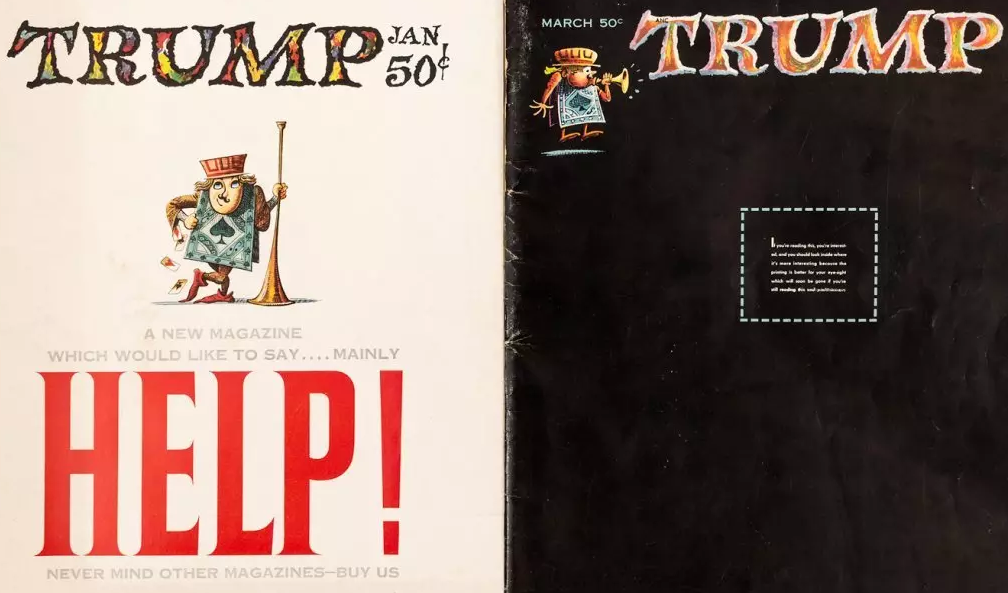Dangerous platitudes about Trump
Posted By Paul Dibb on November 17, 2016 @ 14:30

Much of the commentary in Australia since the US election has reeked of dangerous platitudes. A lot of ‘experts’ (none of whom forecast a Trump victory) are asserting that nothing much will change: President Trump will be much more reasonable than the misogynistic, lying demagogue of the election campaign. Moreover, the checks and balances of the US political system and the decision-making limits of the President will stymie much of Trump’s more outrageous boasts that he’ll change everything.
While it’s understandable that Prime Minister Turnbull and Foreign Minister Bishop are trying to reassure us that they can work with Trump and that our shared values and interests with the US will ensure that the alliance will endure, I do hope that they’re instructing their departments to prepare for outcomes far worse than such complacent assertions.
I’m certainly not arguing here that they should go as far as former Prime Minister Paul Keating’s view that we should now get out of what he terms the ‘sacramental’ US alliance [1]. Has he got any idea of just how dependent on the Americans we are now regarding American support for ADF operations, weapons and targeting since his time as Prime Minister over 20 years ago? For example, the combat system and weapons for the Collins and the future submarine will be entirely American. And would he think about the cost of ‘cutting the tag’? We’d have to triple or quadruple our defence spending without the alliance, meaning mean an additional $70–100 billion a year.
Former Foreign Minister Gareth Evans provides more measured advice [2] when he says that Australia shouldn’t walk away from our alliance with the US but that ‘we will need to be more sceptical of American policies and actions than in recent decades’. He says that ‘Australia should become more self-consciously independent, and assign much higher priority to building closer trade and security ties’ in our own region. Those options will become more compelling if we find ourselves faced with an isolationist America.
Of course, we need to wait and see just what President Trump actually does. But in the meantime, Malcolm Turnbull needs to instruct Foreign Affairs, Defence and the Intelligence Community to urgently undertake a series of ‘what if’ contingency plans. They should include how we develop a more self-reliant defence posture and how we can quickly expand our Defence Force if we have to prepare to defend ourselves alone more often. We now need to put a lot more effort into analysing the United States.
Peter Jennings seems to be in agreement with that approach [3], but he also states we need to stick by our core alliance ‘even when the president is not as user-friendly as some of his predecessors’. That may turn out to be far too relaxed an approach to someone of Trump’s unpredictable personality, especially if he challenges NATO, which he has described as obsolete, encourages Japan to acquire nuclear weapons, enters into a trade war with China or cosies up to Russia. We’re entering uncharted waters here and anybody who argues that not much will change needs to have a drastic rethink. We need a Plan B, which is about having a more independent alliance stance forced upon us. That means we might have to change from being the ally who can never say no (the UK, Canada and New Zealand have all said no at one time or another without breaking the alliance).
Former ambassador to China, Geoff Raby, believes [4] that ‘it’s likely that the entire direction of US foreign policy will change’ and that ‘it is likely to mark a return to great power relations with much less emphasis on alliances’. He thinks that ‘just being close to the US will not be sufficient for our foreign policy’ and that ‘Australia will need to return to the activist and creative foreign policy approaches that we pursued when the world was last centred on great power relations, during the Cold War’. But that isn’t an accurate reflection on where Australia stood in the Cold War when, in my experience, we were absolutely committed to conforming to the US when it came to our national security policies, not least when Malcolm Fraser was Prime Minister.
Right now, we could do a lot worse than follow the advice in the current issue of The Economist [5] to be wary of Trump. It argues that Trump ‘shows no evidence that he has the mastery of detail or sustained concentration that the Oval Office demands.’ Nowhere will his judgement and experience be more exposed than over the control of America’s nuclear arsenal—in a crisis, decisions fall to the President alone.
The Economist hopes that Trump proves those ‘doubts groundless or that, if he fails, a better president will be along in four years.’ The danger, they note, is ‘that disillusion with Trump will only add to the discontent that put him there in the first place,’ which would ‘pave the way for someone even more bent on breaking the system.’ That’s sound advice and it means that we in Canberra should keep our powder dry.
Article printed from The Strategist: https://www.aspistrategist.org.au
URL to article: https://www.aspistrategist.org.au/dangerous-platitudes-trump/
URLs in this post:
[1] the ‘sacramental’ US alliance: http://www.abc.net.au/news/2016-11-10/keating-on-american-foreign-policy-after-trump-victory/8015028
[2] measured advice: http://www.aspistrategist.org.au/preparing-asia-trump/
[3] seems to be in agreement with that approach: http://www.theaustralian.com.au/news/inquirer/us-election-six-home-truths-about-our-new-ally-we-need-to-learn-fast/news-story/42e4f12d5d33fff7f9be72981dccfbb3
[4] believes: http://www.afr.com/opinion/columnists/how-beijing-will-manage-president-trump-20161110-gsmwum
[5] the advice in the current issue of The Economist: http://www.economist.com/news/leaders/21709951-his-victory-threatens-old-certainties-about-america-and-its-role-world-what-will-take
Click here to print.